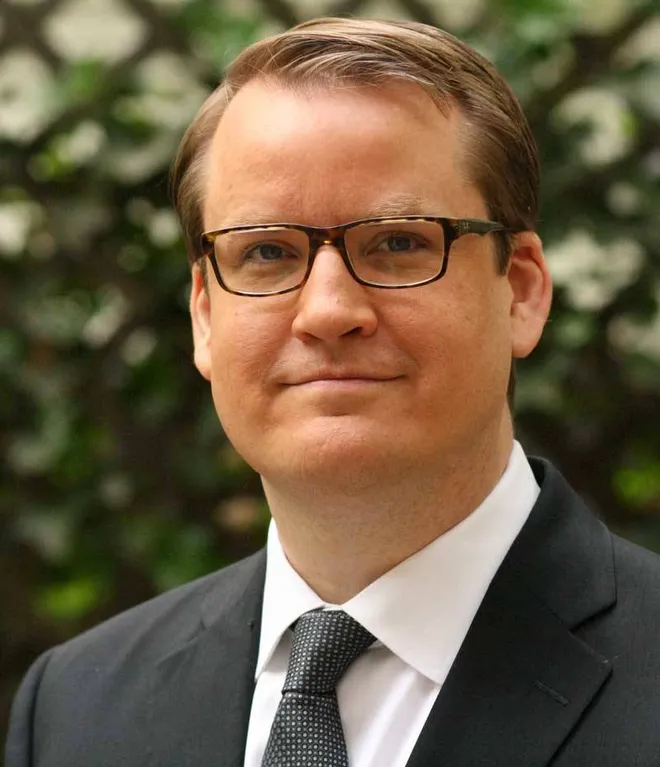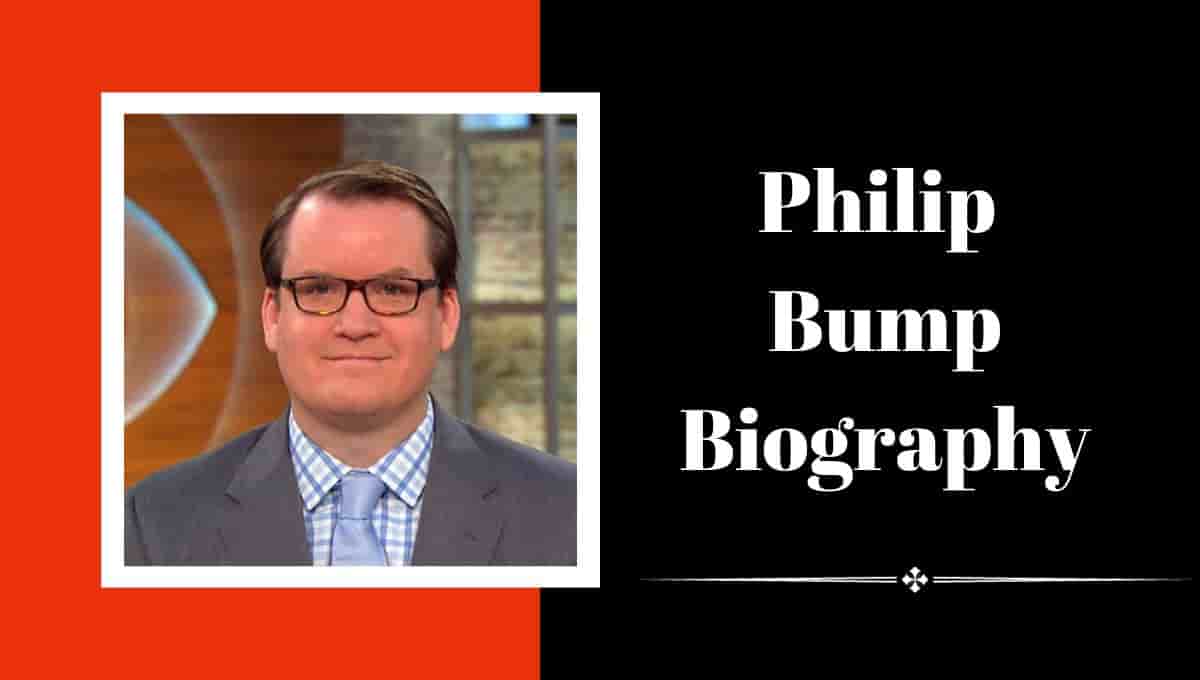Philip Bump Wikipedia, Wiki, Wife, Twitter, Parents, Education, Biography
Philip Bump Wikipedia, Wiki, Wife, Twitter, Parents, Education, Biography – Philip Bump is a well-known writer and journalist, working as a correspondent for The Washington Post. Born on June 23, 1975, in Rochester, New York, he’s currently 47 years old. Bump graduated from The Ohio State University with a Bachelor’s degree.

Before joining The Washington Post, Philip had quite an interesting journey. He managed political campaigns in Silicon Valley, wrote for publications like The Atlantic and Grist, worked as a senior designer at Adobe Systems, and did communications work in New York City. He even earned recognition as a finalist for the 2010 Mirror Award, which is given by the S.I. Newhouse School of Public Communications at Syracuse University for work in media relations.
| Name | Philip Bump |
| Nickname | Philip |
| Age | 47 years old in 2023 |
| Date Of Birth | 23 June 1975 |
| Profession | American writer, author, journalist |
| Religion | Christian |
| Nationality | American |
| Birthplace | Rochester, New York, United States of America |
| Height | 5 feet 8 inch |
| Weight | 78 Kg |
Philip Bump Personal Life and Marriage
In his personal life, Philip Bump is a relatively private individual. He values his privacy, and while he’s active on social media, he doesn’t divulge much about his personal life there. He’s a man of commitment and is married to China Kaweah Ziegenbein. China Kaweah, who was Philip’s longtime girlfriend, is currently the Director of Partnership Development at Tribeca. However, specific details about their wedding date and whether they have children remain undisclosed.
Philip Bump Net Worth
Philip Bump has made a name for himself through his work as a news correspondent, author, and writer. His estimated net worth is around $800,000, earned over the years from various ventures and projects. He began working in his field right after completing his degree.

His professional journey includes working as a Senior Designer at Adobe Systems from March 2000 to September 2002. After that, he transitioned into writing, working for Grist from June 2012 to February 2013, and for The Atlantic Wire from February 2013 to May 2014. His significant stint at The Washington Post began in May 2014, where he has continued to shine as a National Correspondent for nearly a decade.
Philip Bump Career at The Washington Post
Since May 2014, Philip Bump has been a National Correspondent at The Washington Post, and he’s been there for approximately 9 years. He’s best known for his knack for diving into statistics that back up political polls and discussions. One of his popular contributions is a weekly email called “How To Read This Chart.”
Authorship
Besides his work as a journalist, Philip Bump is also an author. He wrote a book titled “The Aftermath: The Last Days of the Baby Boom and the Future of Power in America.” This book delves into how the end of the baby boomer generation coincided with significant changes in American politics and the economy.
Philip Bump Media Appearances
Philip Bump is not just confined to the pages of The Washington Post. He’s made appearances on several major media networks, including MSNBC, Fox News, PBS, and NPR, sharing his insights and analysis on various political matters.
A Controversial Episode
Despite his many achievements, Philip Bump found himself in a bit of hot water during a notable interview. Bump is known for his focus on the numbers behind politics, but this interview put him in an uncomfortable spotlight. The interview was with podcaster and Comedy Cellar owner Noam Dworman, who wanted to discuss the significance of the Joe Biden corruption saga, particularly concerning Biden’s son, Hunter.
In the interview, Dworman presented evidence suggesting that Joe Biden was directly involved in his son’s foreign business operations. Bump, however, repeatedly insisted that the presented evidence wasn’t “proof.” He claimed that there was no evidence of Joe Biden acting on Hunter Biden’s behalf or taking money.

The interview created quite a buzz, with some arguing that Bump either didn’t understand the difference between “proof” and “evidence” or was intentionally downplaying the significance of the evidence presented. It highlighted the challenges of discussing complex political topics in the media.
Social Media Accounts
| Click Here | |
| Click Here | |
| Click Here |
The Difference Between Proof and Evidence
In the interview with Noam Dworman, Philip Bump’s frequent use of the word “evidence” sparked a significant debate. Many viewers questioned his distinction between “proof” and “evidence.”
To clarify, “proof” typically refers to conclusive, undeniable confirmation of a fact or event. It’s often seen as something that leaves no room for doubt. On the other hand, “evidence” refers to information or material that suggests a fact or event but may not definitively prove it. Evidence can be strong or weak, and its interpretation can vary.
Dworman presented a range of evidence during the interview, including clips of Hunter’s former business partners, Congressional testimony, and written communications. All of this evidence indicated that Joe Biden was aware of and involved in his son’s business dealings, which were facilitated by their high-level government connections.
While some viewers believed that the evidence was compelling and indicated wrongdoing, Bump insisted that it wasn’t “evidence” in his view. He argued that it fell short of being “proof” of Joe Biden’s direct involvement or acceptance of funds from the scheme.
The Complexity of Evidence
In legal and investigative contexts, it’s essential to understand that evidence doesn’t always equate to proof. Many criminal trials conclude with convictions based on evidence rather than ironclad proof. This happens when the evidence, taken as a whole, strongly suggests guilt or wrongdoing.
For example, in the case of Alex Murdaugh, who was found guilty of murdering his wife and son, there was no direct confession. Instead, the jury relied on evidence that contradicted his alibi and showed that he wasn’t where he claimed to be.
Similarly, in the context of the Joe Biden corruption saga, there is a body of evidence suggesting his involvement, even if there’s no smoking gun “proof.” This evidence includes testimonies, communications, and circumstantial factors. It’s a matter of interpretation and debate, but it’s certainly not dismissible as irrelevant.
Concluding Thoughts
Philip Bump’s interview with Noam Dworman sparked a lively discussion about the distinction between “evidence” and “proof” in the context of complex political issues. It serves as a reminder that interpreting evidence is often subjective and can lead to varying conclusions.
Philip Bump’s career, from managing political campaigns to becoming a well-respected journalist and author, showcases his dedication to understanding and analyzing the intricate world of politics. While controversies may arise, his work continues to contribute to the broader conversation about political statistics and analysis in the media.
What happened during Philip Bump’s controversial interview mentioned in the article?
Philip Bump was involved in a controversial interview with podcaster and Comedy Cellar owner Noam Dworman. During the interview, Bump repeatedly insisted that the evidence presented regarding the Joe Biden corruption saga was not “proof.” This led to a heated discussion about the difference between “evidence” and “proof” in the context of complex political issues.
What is the distinction between “evidence” and “proof” discussed in the interview?
In the interview, “proof” was referred to as conclusive and undeniable confirmation of a fact or event, leaving no room for doubt. “Evidence,” on the other hand, refers to information or material that suggests a fact or event but may not definitively prove it. The interview highlighted the subjective nature of interpreting evidence.
Why was Philip Bump criticized during the controversial interview?
Philip Bump faced criticism during the interview for his repeated insistence that the evidence presented was not “evidence” in his view. Some viewers believed he either didn’t understand the distinction between “evidence” and “proof” or was downplaying the significance of the evidence presented.
Read More Bio








